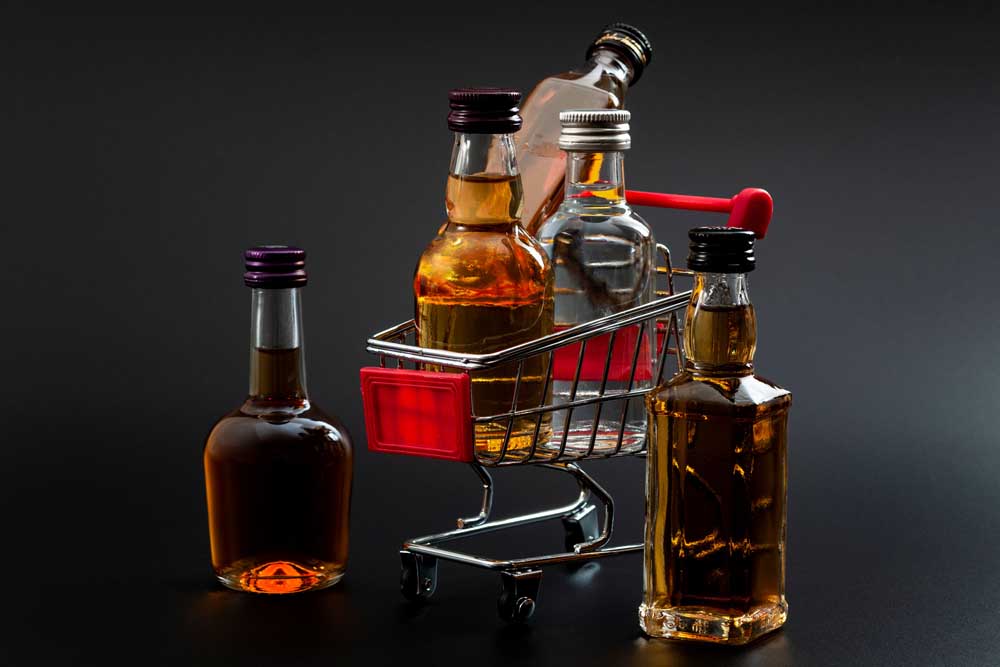Population, tourism growth fuel additional state liquor stores in Central Oregon
Published 4:30 am Friday, March 18, 2022

- Stock image
Central Oregon’s 15 liquor stores average about the same amount in sales as Portland metro’s 79 stores, according to Oregon Liquor & Cannabis Commission data for last year.
Statewide, stores averaged about $2.9 million in sales in the 2021 calendar year, but in Deschutes County, the per-store average was $4 million, and in the Portland metro area it was $4.8 million, said Bryant Haley, OLCC spokesman.
Trending
The commission’s mission is to adjust the number of stores depending on the population with a liquor store for every 15,000 people, Haley said.
“We focus on the region where a store needs to be, and we are sensitive to the locations of markets, schools, rehab clinics and the community,” Haley said. “We’re trying to make sure that everyone has access that’s safe. There’s a lot of balancing of various interest.”
In 2021, the state grossed $813 million in sales from state-controlled liquor stores. Revenue from liquor sales go to fund mental health, alcohol and drug treatment programs, cities, counties and the state general fund.
Over the past six years, five new liquor stores have been added to Central Oregon, a result of a growing population and high demand fueled by a robust tourism industry.
Newport Avenue Market was one of the five new stores approved by the OLCC. The locally owned grocery store chain became an agent for the state to sell distilled spirits in December 2017, said Lauren Redman, Newport Avenue Market CEO.
“We want to sell what our customers want to buy, and that’s why we wanted to be an agent, especially since we carry a wide variety of our local craft distillers products on our shelves,” Redman said. “We hear from our shoppers that they appreciate the convenience of combining their trips into one for both groceries and distilled spirits.”
Trending
Where and how many retail outlets sell distilled spirits is under the jurisdiction of the OLCC, which regularly reviews population data to determine if new liquor stores should be opened. There are 281 liquor stores in Oregon.
In Oregon, the OLCC owns the distilled spirits inventory and distributes to retail liquor locations who sell it to consumers. Only when the liquor is sold does the store owner receive an 8.38% commission.
Alan Dietrich, CEO of Bendistillery, maker of Crater Lake Spirits, said Oregon’s state-controlled model actually creates a playing field that allows equal shelf space for emerging brands. There are 17 states in the country that operate like Oregon’s system, Dietrich said.
Because the state-run systems provide a low barrier for entry, Bendistillery switched its marketing effort post-pandemic to mainly selling in these markets.
“Oregon is good at managing this system,” Dietrich said. “The state has gone out of its way to make the system work for small distilleries. The smaller you are, the better you do in a controlled state.’’
Competition is keen for shelf space as is space on the distributor truck, he said. Often distributors will give more attention to the larger distilleries over the emerging ones.
“When distilleries my size go into another state, our distributor mandates who we work with and who gets the most attention,” Dietrich said. “The big brands and distributors have a vested interest in making sure that an emerging distillery doesn’t grow.
“A state-controlled system doesn’t care what sells. All brands are equal.”
Last month the OLCC opened up Multnomah, Clackamas and Washington counties to new stores, based upon the population model.
“We regularly review population trends in correlation with sales data when considering potential expansion,” Haley said. “We present that information to the commission for its consideration.”
“We’re trying to make sure that everyone has access that’s safe. There’s a lot of balancing of various interest.”
Bryant Haley, OLCC spokesman
“A state-controlled system doesn’t care what sells. All brands are equal.”
Alan Dietrich, CEO of Bendistillery








